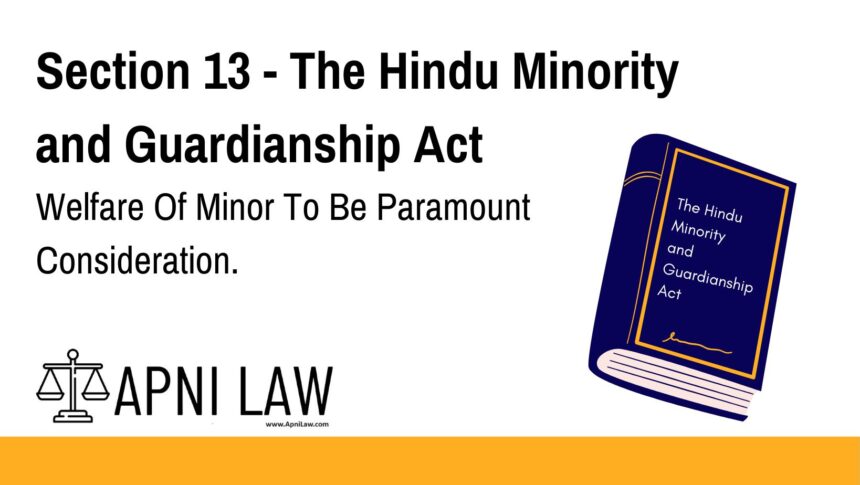Code
“(1) In the appointment or declaration of any person as guardian of a Hindu minor by a court, the welfare of the minor shall be the paramount consideration.
(2) No person shall be entitled to the guardianship by virtue of the provisions of this Act or of any law relating to guardianship in marriage among Hindus, if the court is of opinion that his or her guardianship will not be for the welfare of the minor.”
— Section 13, The Hindu Minority and Guardianship Act, 1956
Explanation
Section 13 lays down a fundamental principle in Hindu guardianship law: the welfare of the minor must always come first.
Key Takeaways:
-
Paramount Consideration: Courts must prioritize the best interests of the minor above all else when appointing or declaring a guardian.
-
Disqualification Clause: Even if a person has a statutory or customary right to guardianship, the court can deny guardianship if it believes the appointment would not benefit the minor.
-
Welfare Test: Welfare includes not only the child’s physical well-being but also their emotional, educational, and moral development.
This section overrides all other provisions and customs — making the child’s best interest the supreme criterion.
Illustration
🔹 Example 1:
A Hindu father seeks guardianship of his 9-year-old daughter. However, the court finds that he is involved in criminal activities and has a history of domestic abuse.
📌 Despite being the natural guardian under Section 6, the court will deny guardianship due to the welfare principle under Section 13.
🔹 Example 2:
A wealthy uncle offers better education and emotional support to a minor. The court may appoint him guardian, despite the presence of a surviving parent, if it’s in the child’s best interest.
Common Questions & Answers
Q1: What does “welfare of the minor” mean legally?
It refers to a broad assessment of the child’s well-being — including physical health, education, emotional support, and overall development.
Q2: Can a natural guardian be denied guardianship?
Yes. Even a natural guardian (like the father or mother) may be refused if the court deems them unfit to protect the welfare of the minor.
Q3: Does this section override other provisions in the Act?
Yes. Section 13 is a dominant clause and prevails over conflicting provisions, customs, or laws related to guardianship.
Q4: What factors do courts consider while determining welfare?
Courts consider the child’s age, emotional ties, educational needs, security, character of the proposed guardian, and the child’s preferences (if old enough).
Conclusion
Section 13 of the Hindu Minority and Guardianship Act serves as the backbone of child welfare jurisprudence in Hindu law. It places the welfare of the minor above all other considerations — whether statutory, customary, or personal. This ensures that guardianship is not a matter of entitlement, but of trust and responsibility, always with the child’s best interest at heart








